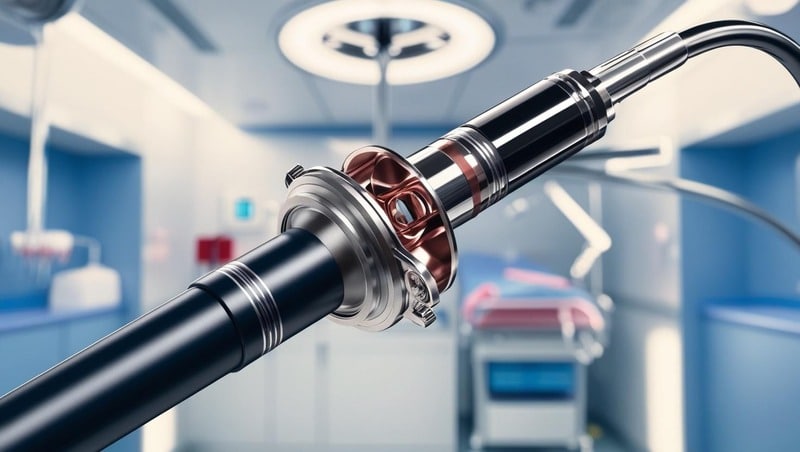
The United States Food and Drug Administration (FDA) has cleared the first fully disposable duodenoscope on the market. The industry believes that a move to disposable parts, and now fully disposable scopes, will help reduce infection risks. Poorly disinfected duodenoscopes have been linked to numerous cases of superbug outbreaks over the past several years.
The FDA granted clearance to Boston Scientific’s EXALT Model D disposable duodenoscope in December 2019. The disposable model has been designed to function similarly to other duodenoscopes on the market. As this article by Conor Hale at FierceBiotech explains:
“The availability of a fully disposable duodenoscope represents another major step forward for improving the safety of these devices, which are used in more than 500,000 procedures in the U.S. each year,” said the FDA’s device center director, Jeff Shuren, in an agency statement. “Unlike duodenoscopes that are used on multiple patients, a fully disposable duodenoscope doesn’t need to be reprocessed, eliminating the risk of potential infection due to ineffective reprocessing.”
Boston Scientific says the lightweight device mimics the controls of reusable duodenoscopes to be more familiar to physicians. The company plans to roll out the EXALT Model D, which previously received a breakthrough-device designation from the FDA, in a limited commercial release during the first quarter of 2020.
The FDA recently cleared Pentax Medical’s Video ED34-i10T2, its first duodenoscope with a fully disposable head piece—which typically houses intricate moving parts and tight crevices where biomatter and bacteria can survive disinfection processes. The device’s predecessor, the ED34-i10T, was the first OK’d by the agency to have a disposable plastic end-cap covering.
In October, the FDA greenlighted a disposable, sterile cover for duodenoscopes developed by GI Scientific. The ScopeSeal device fully encloses the front end and acts as a barrier for its inner working areas, preventing them from becoming soiled with biomatter during biopsy collection or when draining fluids.
“Improving the safety of duodenoscopes is a top priority for the FDA since such devices remain critical to life-saving care for many patients, and the FDA continues to encourage innovative ways to improve the safety and effectiveness of these devices,” Shuren said.
New data from FDA safety surveillance studies earlier this year tracking contamination rates from reprocessed duodenoscopes found up to 5.4% of samples taken from the reusable devices tested positive for “high concern” organisms—including Escherichia coli and Staphylococcus infections.
But in terms of overall infection rates, the FDA said it has seen dramatic declines, though patient deaths and disease outbreaks have been reported.”
Read the entire article here: FDA clears Boston Scientific’s disposable duodenoscope, the world’s first
While the transition from rigid end caps, to disposable end caps to now fully disposable duodenoscopes takes place, hospitals must make sure that their staff is following the proper protocols each and every time a duodenoscope is disinfected. Fully disposable duodenoscopes may make financial sense to some facilities, but most will be expected to continue to high-level disinfect their reusable duodenoscopes after each use. Systems such as iRIScope can display the proper workflow for reprocessing duodenoscopes and document the process automatically. Any breaches of protocol can be alerted in real-time to protect patients and identify which staff members need additional training on reprocessing techniques. You owe it to your staff and your patients to offer everyone the peace of mind that duodenoscopes and all other flexible endoscopes are being properly reprocessed every single time.
Related posts:
- Enhancing Patient Safety and Regulatory Compliance: The Future of Endoscope Management with iRIScope
- Revolutionizing Endoscope Management with iRIScope: Ensuring Compliance with ST91 Standards
- The Hidden Risks in Endoscope Management—And How to Fix Them
- The Missing Link in Hospital Efficiency: How SurgiCart is Changing the Game
